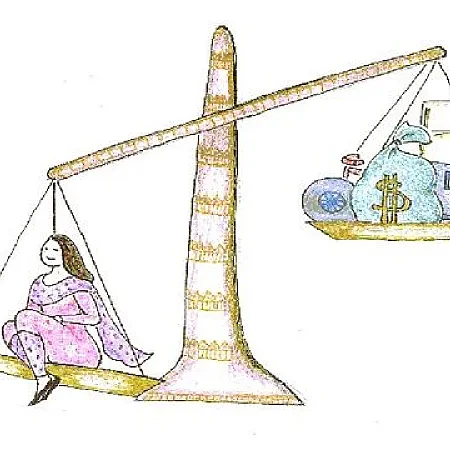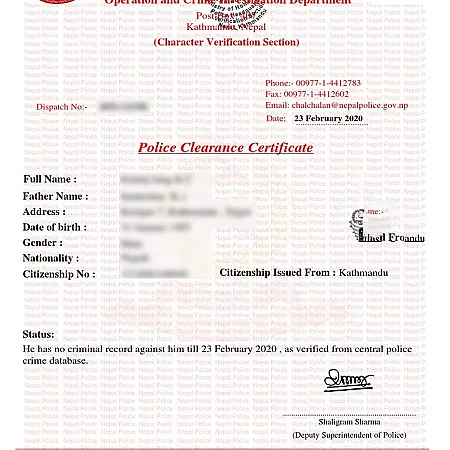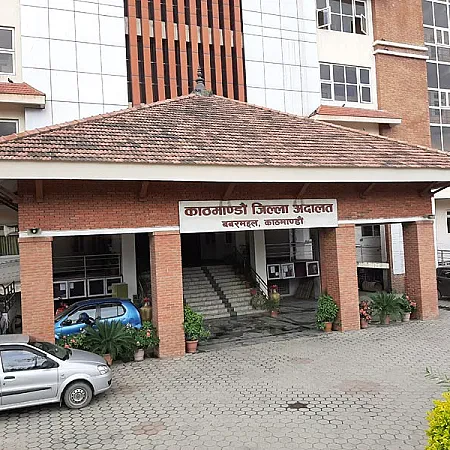Alimony in Nepal: Complete Guide to Divorce and Spousal Maintenance
Alimony, also known as spousal maintenance or support, is a financial allowance that one spouse may be required to pay to the other after separation or divorce. In Nepal, alimony plays a crucial role in ensuring financial stability, especially for the economically weaker party after a marriage ends. This guide explores the legal framework, types, filing procedures, and frequently asked questions about alimony in Nepal
Understanding Alimony
Alimony, also referred to as spousal support or spousal maintenance, refers to court-ordered financial support paid by one spouse to the other during or after divorce or separation. It aims to balance any unfair economic effects resulting from the divorce.

Legal Framework for Alimony in Nepal
The Muluki Civil Code, 2074 (2017), governs alimony law in Nepal. According to this law:
- The financially dependent spouse is entitled to financial support post-divorce.
- Courts consider the spouse's income, health, age, ability to work, standard of living, and length of the marriage.
- Alimony can be temporary or permanent, based on the circumstances.
Relevant Sections:
- Chapter on Divorce and Maintenance section (100)
- Chapter on Property Rights and Marital Assets
Types of Alimony
1. Temporary Alimony
Awarded during ongoing divorce proceedings to support the dependent spouse.
2. Permanent Alimony
Granted after the final divorce settlement based on long-term needs.
3. Rehabilitative Alimony
Temporary support intended to help the recipient become self-sufficient through education or training.
4. Lump Sum Alimony
A one-time payment instead of monthly payments.
Eligibility Criteria
To claim alimony, the spouse must prove:
- Financial dependence on the other spouse.
- Inability to maintain the same standard of living after divorce.
- Contribution to the marriage, including unpaid work or support.
Filing for Alimony in Nepal
To file for alimony:
- Hire an experienced alimony lawyer near you.
- Submit an application to the District Court.
- Provide evidence of income, property, marriage length, and dependence.
Important Tip: Mutual divorce settlements should clearly state the alimony agreement.
Prenuptial Agreements and Alimony
A prenuptial agreement (prenup) can influence alimony decisions. If the prenup waives or sets limits on alimony, the court may honor it unless found unfair.
Alimony for Husbands and Wives
In Nepal, both men and women may claim alimony depending on financial status. Courts assess both parties equally.
Examples:
- Alimony for husband
- Alimony for working wife
Alimony After Divorce
Alimony isn’t limited to the divorce process. One can file for alimony years after divorce if financial need is proven.
Gray Divorce Alimony
For divorces after long marriages (e.g., 30+ years), courts often grant permanent alimony due to age and limited income capacity.
Example: Divorce after 30 years of marriage alimony
Alimony and Infidelity
Infidelity may impact alimony awards depending on the circumstances and evidence. It can sometimes reduce or increase the amount depending on harm caused.
Military Divorce and Alimony
Military personnel in Nepal are not exempt from paying alimony. Special conditions apply in case of pensions and benefits.
Alimony Without Divorce
Spousal maintenance can sometimes be awarded during separation or in special cases even without formal divorce.
Avoiding or Modifying Alimony
Alimony can be modified upon change in circumstances, such as job loss or remarriage. Avoiding alimony through fraud or manipulation can have legal consequences.
FAQs on Alimony in Nepal
Q1: In a divorce, who pays alimony?
The financially stronger spouse pays alimony to the dependent spouse.
Q2: Can a working wife get alimony?
Yes, if she earns significantly less and cannot maintain her prior lifestyle.
Q3: What is the average cost of alimony?
It varies based on income, assets, and length of marriage.
Q4: Can I modify or stop paying alimony?
Yes, through a formal court application proving changed circumstances.
Q5: What happens if my ex-husband stops paying alimony?
You can file a legal complaint to enforce the alimony agreement.










